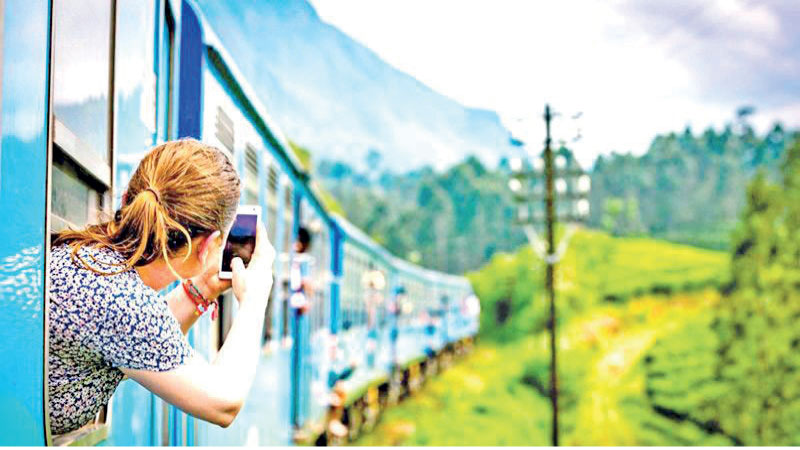Tuesday Feb 17, 2026
Tuesday Feb 17, 2026
Monday, 24 July 2023 00:00 - - {{hitsCtrl.values.hits}}

The integration of digital tools and AI into Sri Lanka’s tourism industry presents a golden opportunity to cater to the evolving needs of modern travellers while promoting sustainable practices
 The tourism industry in Sri Lanka has always been a key driver of economic growth, contributing significantly to employment and foreign exchange earnings. The importance of tourism into Sri Lanka has felt so much more than ever before. As the world becomes increasingly connected, travellers are seeking more personalised and immersive experiences.
The tourism industry in Sri Lanka has always been a key driver of economic growth, contributing significantly to employment and foreign exchange earnings. The importance of tourism into Sri Lanka has felt so much more than ever before. As the world becomes increasingly connected, travellers are seeking more personalised and immersive experiences.
In recent years, technological advancements have transformed the global travel landscape, and it is crucial for Sri Lanka to embrace these innovations to stay competitive and attract a new generation of travellers.
Here’s how digital tools and AI can revolutionise the tourism sector in Sri Lanka:
1) Personalised travel recommendations: AI-powered algorithms can analyse vast amounts of data, including travel preferences, past behaviour, and interests, to offer personalised travel recommendations to visitors. This level of personalisation enhances the travel experience, encouraging tourists to explore lesser-known destinations and engage with local communities.
2) Smart destination management: Digital tools can be employed to efficiently manage tourist destinations, optimising resource allocation and mitigating the impact of mass tourism on delicate ecosystems. Smart solutions can help distribute footfall across different regions, reducing the burden on popular tourist hotspots.
3) Enhanced customer service: AI chatbots and virtual assistants can provide real-time assistance to travellers, answering their queries and providing useful information about attractions, local customs, and events. This level of convenience and accessibility creates a positive impression among tourists.
4) Augmented Reality (AR) and Virtual Reality (VR) experiences: AR and VR technologies offer immersive storytelling and virtual tours, allowing visitors to experience Sri Lanka’s cultural and historical treasures from the comfort of their homes. These experiences not only pique travellers’ interest but also increase the likelihood of visitation. This can be a powerful marketing tool to attract young travellers to Sri Lanka and also to let them engage with Sri Lankan culture and history in a novel way.
5) Data-driven decision making: Data analytics can offer valuable insights into traveller behaviour, allowing tourism authorities and businesses to make informed decisions about product offerings, marketing strategies, and infrastructure development.
6) Sustainable tourism: Digital tools and AI can play a significant role in promoting sustainable tourism practices. From optimising transportation routes to tracking environmental impact, technology can help minimise the ecological footprint of travellers and promote responsible tourism.
It is essential for Sri Lanka’s tourism industry to embrace these digital advancements. However, this transformation requires collaboration among the Government, private sector, and academia to build the necessary infrastructure, implement regulations, and develop a skilled workforce to harness the potential of digital tools and AI effectively.
In conclusion, the integration of digital tools and AI into Sri Lanka’s tourism industry presents a golden opportunity to cater to the evolving needs of modern travellers while promoting sustainable practices. By leveraging these technologies, Sri Lanka can position itself as a top-tier global tourist destination, attracting a diverse range of visitors seeking unforgettable and enriching experiences.
(The writer is a Trav-Tech Entrepreneur, holding an MBA (AI), UK.)